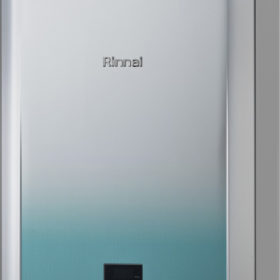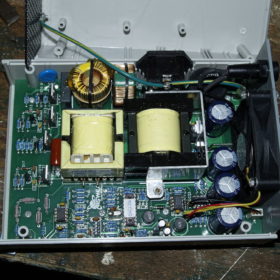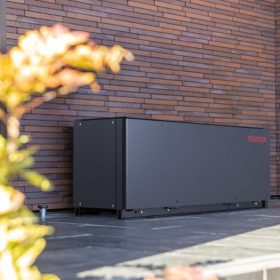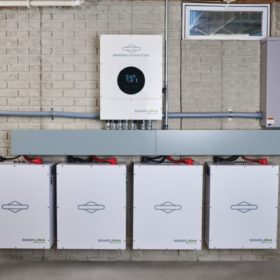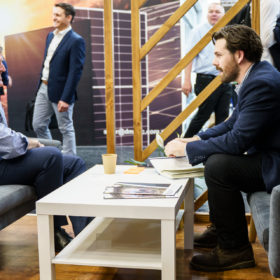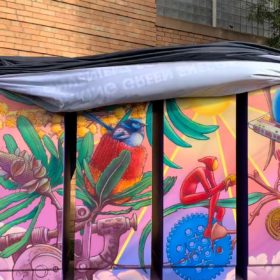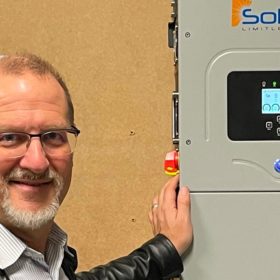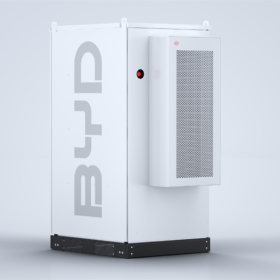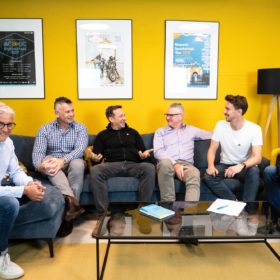Hydrogen combustion tech for residential water heaters, trials in Australia
Japan’s Rinnai has unveiled what it claims is the world’s first 100% hydrogen combustion technology for residential water heaters. It is currently using the hydrogen water heater in demonstration projects in Australia, prior to commercialisation.
New model for grid-forming inverter operation
Scientists in the United States have developed a new model to allow utilities to use grid-forming inverters in order to better manage renewable energy intermittency. They describe the inverter main circuit representation, the droop control, and the fault current limiting function.
Toyota unveils 8.7 kWh battery for residential applications
The battery has a rated output of 5.5 kW and can be installed in outdoor environments. It is equipped with a hybrid power conditioner, a DC-to-DC converter, and a vehicle power supply adapter with a maximum output of 1.1 kWh.
Briggs & Stratton launches residential storage solution with lithium-ferro-phosphate chemistry
United States-based manufacturer Briggs & Stratton offers the storage solution with a 6kW inverter, a 4.9kWh battery, and a proprietary monitoring system.
Interview: Maxeon’s Mark Babcock talks sustainability, traceability, and what makes the Australian market so exciting
Singapore-headquartered solar manufacturer Maxeon Solar Technologies, which sells in Australia under the SunPower Maxeon brand, announced in May that it was launching its new holistic energy management system in Australia in the third quarter of 2022. pv magazine Australia sat down with Maxeon Solar Technologies’ chief revenue officer Mark Babcock in Munich, Germany, at Intersolar 2022.
Victoria boosts battery funding after ‘state first’ storage solution switched on
The Victorian government has announced a multi-million-dollar expansion of its $11 million Neighbourhood Battery Initiative after what is being described as the state’s “first inner-urban” community battery energy storage system was switched on in Melbourne’s northern suburbs.
SA scraps renewables schemes despite declaring ‘climate emergency’
Just days after declaring a climate emergency, the South Australian government has axed a renewable energy policy that was designed to help more homeowners access residential battery energy storage systems.
Redflow announces integration with US inverter company
Australian redox-flow battery specialist Redflow has upped the ante on its plans to expand into the United States market, announcing it has completed testing that will pave the way for its battery energy storage system to be used in conjunction with hybrid inverters manufactured by United States solar engineering company Sol-Ark.
BYD launches new C&I battery
Chinese battery manufacturer BYD has launched an expanded portfolio of energy storage systems designed for the commercial and industrial solar markets. At The smarter E in Munich last month the company also provided a sneak peak at a new high-voltage storage system expected to be launched later this year.
Melbourne-based 8 Star Energy set to shine in Europe
Melbourne-based 8 Star Energy has been announced as a distribution partner alongside Germany-based Memodo as world leading battery brand Energizer launches its Energizer Solar PV portfolio across Europe.
